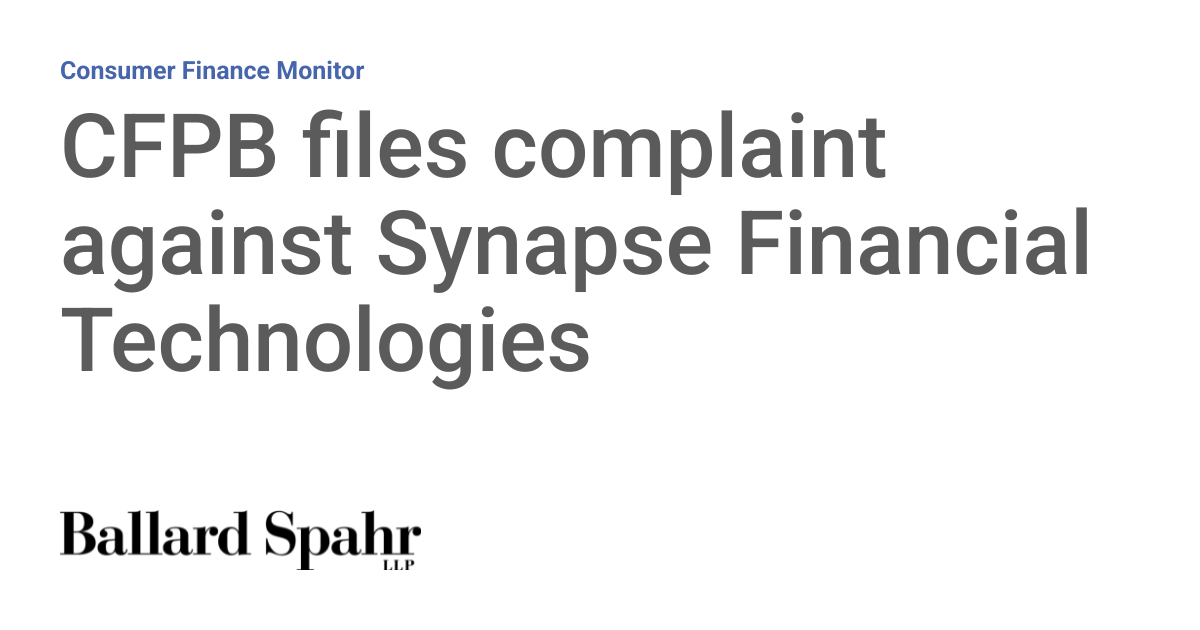CFPB Steps In with $1 Civil Penalty to Recover $60-90 Million for Consumers in Synapse Fintech Collapse

The Consumer Financial Protection Bureau (CFPB) has filed a lawsuit against Synapse Financial Technologies, Inc., proposing a $1 civil money penalty to enable access to its civil penalty fund, aiming to compensate consumers who lost funds following the fintech's bankruptcy. This action comes after Synapse, a banking-as-a-service middleware provider, allegedly failed to maintain accurate records of consumer funds, leading to a shortfall of an estimated $60 million to $90 million. The situation has left thousands of consumers unable to access their savings for weeks or months, prompting a broader discussion on accountability in the rapidly evolving fintech sector.
Alex Johnson, a prominent voice in financial services, highlighted the issue on social media, stating, "VCs pocket the upside. Consumers absorb the downside. Is that innovation, or is it just moral hazard?" Johnson's tweet, referencing the Synapse case, questions the current model where venture capitalists often emerge unscathed from fintech failures while consumers bear the brunt. The CFPB's intervention, which includes a nominal $1 fine, allows the bureau to utilize its civil penalty fund, which had over $118 million unallocated as of September 2024, to directly redress harmed customers.
Synapse filed for Chapter 11 bankruptcy protection in April 2024, after its records failed to match those of its partner banks, causing a significant discrepancy in consumer account balances. The company acted as a crucial bridge between nonbank fintech platforms and traditional banks, facilitating banking services without fintechs needing their own charters. This collapse has exposed vulnerabilities in the banking-as-a-service model, where complex interdependencies can leave consumer funds at risk when a key intermediary fails.
The CFPB's complaint alleges that Synapse violated the Consumer Financial Protection Act of 2010 by failing to adequately track and reconcile consumer funds. Affected consumers, including users of fintech platforms like Yotta, Copper, and Juno, reported severe hardships, from being unable to pay bills to experiencing emotional distress. The proposed judgment also includes injunctive relief, prohibiting Synapse from selling customer information.
The Synapse debacle has intensified calls for increased regulatory oversight in the fintech industry and a re-evaluation of investor responsibility. Discussions are underway regarding whether venture capitalists should share in the downside risk when their funded fintech ventures implode, and if an "FDIC-style" insurance fund for fintechs is a viable solution. Critics argue that the current regulatory framework, often described as "Calvinball," lacks clear accountability for all parties involved in the fintech ecosystem.